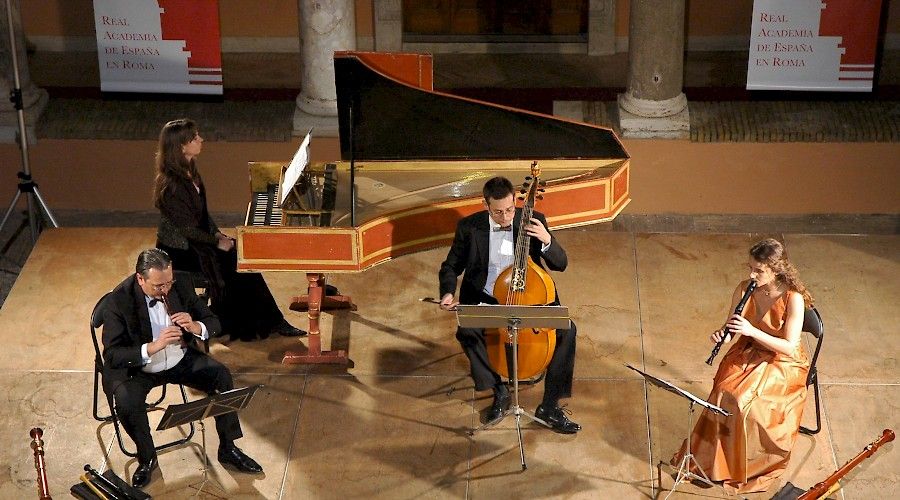The Fountains of Bimini: La Folía Baroque Ensemble on Tour

La Folía presents a concert program commemorating the 500th anniversary of the arrival of Juan Ponce de León to the coasts of Florida.
The Baroque Ensemble La Folía, directed by Pedro Bonet, currently holds the record for the longest Spanish run in the field of historic musical interpretation. Its name is taken from the popular composition of Iberian origin known as the Folía in Spain, as the Follia in Italy and as Folies d’Espagne in France.
To celebrate the 500th anniversary of Florida, La Folía is touring the USA with The Fountains of Bimini program. The island of Bimini appears in indigenous mythology as the place where the fountains of eternal youth were located. The Spaniard Juan Ponce de León did not rule out the possibility of having discovered this prized island when he arrived at the east coasts of America for the first time on 2 April 1513, the feast day known as Pascua Florida.
In this tour La Folía performs a range of musical pieces that are directly related to the early history of the United States of America and embrace the Spanish aspect, the presence of other nations like France and England and the gaining of independence.
The program features a broad selection of pieces ranging from the fifteenth to the nineteenth centuries. It begins with compositions by Juan Cornago (c. 1453–1475) and the famous Hacnacpachap Cussicuinin (From the heavens my joy), a hymn published in Quechua in Lima in 1631 and the oldest surviving printed polyphonic piece in America.
It continues with works by Manuel Sumaya (1680–1755), Haydn (1732–1809), Esteban Salas (1725–1803), Joseph Ritson (1752–1803), James Lyon (1735–1794), Clement Marot (1496–1544) and Claude Gudimel (1514/20–1572), Michel Blavet (1700–1768) and Jean Baptiste Lully (1683–1764). A prominent piece is the Air La curiosité by André Campra (1660–1744), obtained from the music manuscript lent by the Historic New Orleans Collection. This look at history also includes works by James Hewitt (1770–1827) and Ignacio de Jerusalem (1707–1769).
Performers: Celia Alcedo, soprano; Pedro Bonet, recorder, Native American flute and direction; Belén González Castaño, recorder; Aurora Martínez, viola da gamba; Juan Carlos de Mulder, baroque guitar; Laura Puerto, harpsichord.